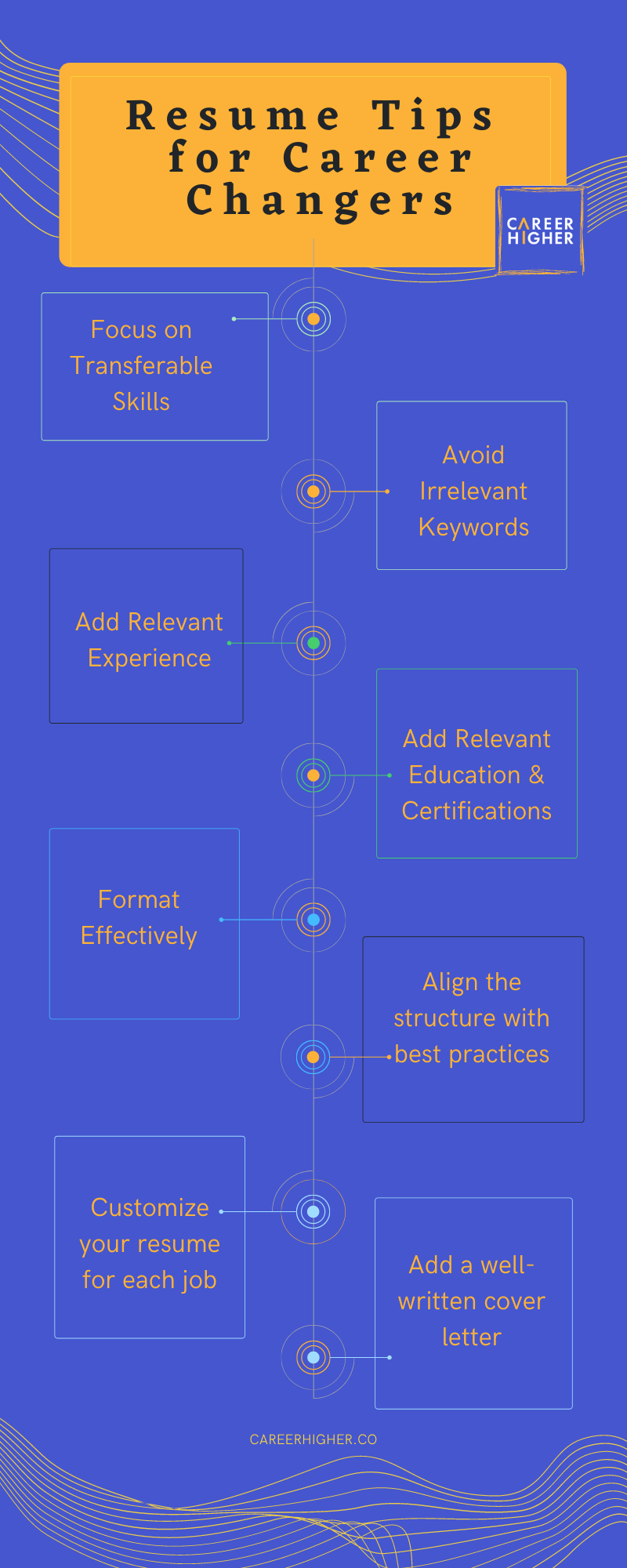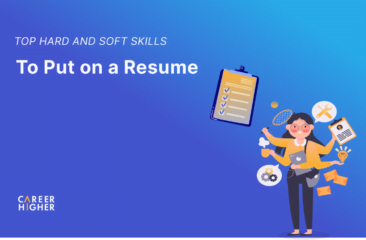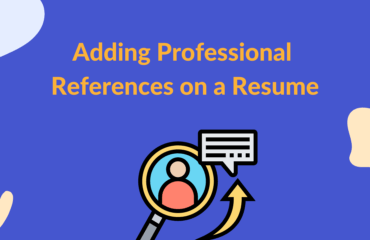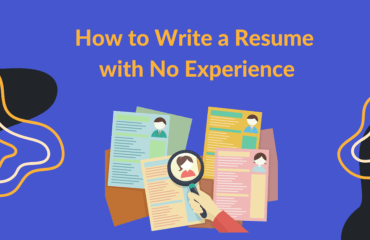Table of Contents
The job search trajectory of professionals changing industries may look different from that of job seekers looking for jobs in the same industry. Changing an industry is more challenging as there is an additional need to prove the value you can add to the new industry based on your previous experience. Since your goals are different, the focus of your resume should be different too.
Generally speaking, your resume should be ATS-optimized, following the industry’s best practices in terms of content, formatting, and structure. However, when changing industries, recruiters look for specific content in your resume and cover letter. Some of these are:
- The rationale for a career change
- Ability to perform the job
- Fit with the organization
- Are you worth taking the risk for
In this article, we will have a look at some of the areas that professionals should focus on when changing industries or functions. The objective here would be to address most of the concerns listed above. Before we begin, we would also like to highlight that the best place to address your reason for changing industries is a cover letter. A well-written cover letter exhibits your potential as the best fit for the job and allows you to elaborate and justify your career change.
1. Utilize transferable skills
Transferable skills are the ones that can be transferred from one job to another and utilized to perform tasks in your new career. These are your soft or hard skills that help organizations irrespective of the industry and job role. Some of the most sought after transferable skills are:
- Analytical reasoning
- Critical thinking
- Negotiation and persuasion skills
- People management
- Conflict resolution
- Organizational skills
- Project Management
- Computer skills
A suitable place to talk about your relevant skills is your professional summary. This resume section highlights your experience, skills, and expertise to reflect your alignment with the role. Let’s have a look at an example that demonstrates your skills constructively:
“Excel at delivering innovative and unique business solutions; enhanced customer reference rate from 20% to 90% within 12 months.”
2. Focus on relevant experience
Your professional experience section is the next focal point in your resume. As someone moving to a different industry or sector, it is necessary to align this section with your target job. This means adding the most relevant work experience and complementing it with the most suitable skills based on the target job description.
It could be so that your current experience has very few similarities with the role that you are targeting. In such a scenario, we suggest you identify and list the commonalities and use them as a basis for your experience section. For example, 30% of your current job could form 70% of your respective resume section, assuming it represents relevant tasks and activities.
For example, you are an HR professional who has worked on small-scale projects but is now applying for a Project Manager role. In this case, you need to make sure that your experience working on projects is highlighted extensively in your experience section. This will allow the recruiters to understand your work as a project manager and your potential to make a difference.
3. Highlight relevant education and certifications
When you are making an application in a new sector, understanding the prerequisites and working on them will help you gain a competitive edge. Relevant education and certifications can help you make a strong case in your favor. Suppose you are currently working in Marketing but are looking to change domains and move to HR. In this case, you may look for a suitable course with an organization like CIPD that specializes in HR courses, workshops, and training. This will allow you to have a thorough understanding of the new domain and present your case better when interviewed.
4. Get keywords right
In any resume, keywords play a significant role. Customizing your resume for every job will ensure all relevant keywords are added to enhance your chances of success. When moving to a new industry, it may be challenging to include all required keywords. In such a case, identify all keywords that align with your past experiences and can be added easily to your resume. For other keywords that do not match with your previous job responsibilities directly, check if they have any relation with your current job.
For example, you are currently working in recruitment and are targeting sales jobs. One of the keywords in your target job description is sales target, and you are wondering how you could add this to your resume since you have never held a sales role in the past. Well, you still have a chance to add this keyword even when your current position isn’t sales-related. In many cases, recruiters are required to complete candidate targets. If your role is such, you may repurpose this information and succeed in adding this keyword. Adopting such an approach will allow you to add maximum keywords to optimize your resume.

Resume tips for career changers
As changing careers requires time, effort, and patience, we recommend you take a structured approach to maximize the output. A well-written resume can help you land your dream job, as this brings you closer to the next step. If you are planning to change your career but find it challenging, feel free to reach out to our experts.











